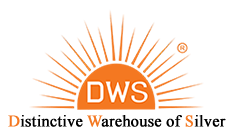- Written By Team DWS
- Festivals
- April 01, 2025
Raising Awareness: The Importance of World Autism Awareness Day
Every year on April 2nd, the world observes World Autism Awareness Day, a day dedicated to raising awareness about autism spectrum disorder (ASD) and promoting understanding and acceptance of individuals on the spectrum. Autism is a complex neurological and developmental condition that affects millions worldwide, transcending boundaries of race, gender, and socioeconomic status. While autism can present unique challenges, it also encompasses a wide range of abilities and talents. This day serves as a crucial opportunity to educate society about autism, dispel myths, and foster acceptance.
-dws638790818356953686.jpg)
Understanding Autism Spectrum Disorder
Autism Spectrum Disorder is characterized by a range of challenges in communication, social interaction, and behavior. The term "spectrum" reflects the wide variability in challenges and abilities that individuals with autism may experience. Some individuals may require significant support in their daily lives, while others may be highly independent, excelling in specific areas such as mathematics, art, or music.
ASD impacts approximately 1 in 54 children in the United States, according to the Centers for Disease Control and Prevention. Despite increasing prevalence, misconceptions and stigmas still surround autism, leading to societal misunderstandings that can diminish the quality of life for those with the disorder. World Autism Awareness Day aims to dismantle those barriers and promote knowledge and empathy.
The Significance of Awareness
Awareness is the first step toward acceptance and inclusion. When we understand autism, we’re better equipped to create supportive environments that embrace neurodiversity. This can be achieved through education, advocacy, and the promotion of inclusive practices in schools, workplaces, and communities.
- Educating the Public: One of the primary goals of World Autism Awareness Day is to educate people about the realities of autism. Events, workshops, and information campaigns are organized worldwide to share insights into the diverse experiences of those on the spectrum. Such educational initiatives help to break down stereotypes that often lead to discrimination.
- Fostering Acceptance: Understanding autism is more than just understanding the diagnosis—it's about accepting individuals for who they are. By learning about the strengths and challenges faced by those with autism, communities can work towards fostering acceptance and building inclusive spaces. Acceptance also means advocating for the rights and voices of those on the spectrum, promoting their needs, and upholding their dignity.
- Encouraging Early Diagnosis and Intervention: Awareness days also highlight the importance of early diagnosis and intervention. Early detection can lead to tailored educational programs that nurture the strengths of individuals with autism while addressing their challenges. Getting support early can immensely improve outcomes for individuals on the spectrum, allowing them to thrive in various aspects of life.
- Promoting Research and Resources: An often overlooked aspect of World Autism Awareness Day is the call for increased investment in autism research and resource availability. Understanding the causes of autism and developing effective interventions is vital. Increased awareness can spur governmental and private action to allocate funds for research initiatives and programs designed to support individuals with autism and their families.
Celebrating Neurodiversity
It’s crucial to shift the narrative around autism from one of limitation to one of potential. Individuals with autism contribute to society in countless meaningful ways. Their unique perspectives can drive innovation and creativity. By celebrating neurodiversity, we encourage a richer tapestry of human experience that benefits us all.
Various organizations and advocacy groups facilitate events on World Autism Awareness Day that highlight the talents of individuals with autism. Art exhibitions, performances, and competitions allow those on the spectrum to showcase their skills, emphasizing their contributions to society while promoting a more inclusive environment.
Taking Action
As individuals, we can all contribute to the objectives of World Autism Awareness Day. Here are a few practical steps:
- Educate Yourself and Others: Read books, watch documentaries, and engage with reputable resources to gain a better understanding of autism. Share your knowledge with friends, family, and colleagues to promote awareness.
- Support Local Organizations: Many communities have autism advocacy organizations that work tirelessly to support individuals and families affected by autism. Consider volunteering your time or donating to these organizations.
- Attend Events: Participate in or organize events that promote awareness and acceptance. Whether virtual or in-person, these gatherings foster a sense of community and shared purpose.
- Advocate for Inclusion: Speak up for inclusive practices in schools and workplaces. Encourage environments that accommodate and value neurodiversity, where everyone has the opportunity to succeed.
In conclusion, World Autism Awareness Day is an important reminder of the need for understanding, acceptance, and advocacy surrounding autism. By raising awareness, we can promote a society that values diversity in all its forms and ensures that every individual, regardless of their neurological makeup, has the opportunity to thrive. Let us work together to create a world where acceptance reigns and everyone is celebrated for their unique gifts.
-dws638790818618356181.jpg)
World Autism Awareness Day FAQs: Understanding and Supporting the Autism Community
Sure! Here's a list of frequently asked questions (FAQs) about World Autism Awareness Day:
1. What is World Autism Awareness Day?
World Autism Awareness Day is observed on April 2nd each year to raise awareness about autism spectrum disorder (ASD) and promote acceptance and understanding of individuals on the autism spectrum.
2. When was World Autism Awareness Day established?
World Autism Awareness Day was established by the United Nations General Assembly on December 18, 2007, and was first observed on April 2, 2008.
3. Why is World Autism Awareness Day important?
The day serves to increase understanding and acceptance of autism, highlight the challenges faced by individuals with autism and their families, and encourage support and inclusion in society.
4. How is World Autism Awareness Day celebrated?
Celebrations vary worldwide and may include educational events, community activities, awareness campaigns, and wearing blue, which is the official color of the day. Buildings and landmarks may also be illuminated in blue.
5. What is the significance of the color blue?
Blue is associated with autism awareness initiatives and symbolizes the need for support and understanding for individuals with autism. The "Light It Up Blue" campaign encourages people to wear blue on this day.
6. Who can participate in World Autism Awareness Day?
Everyone can participate! This includes individuals on the autism spectrum, families, caregivers, educators, health professionals, advocates, and the general public.
7. What can I do to support World Autism Awareness Day?
You can support the day by wearing blue, sharing information on social media, participating in local events or campaigns, donating to autism-related organizations, and educating yourself and others about autism.
8. Are there specific themes or focuses for each year?
Yes, the United Nations often selects specific themes for World Autism Awareness Day to focus on different aspects of autism and to highlight current issues relevant to the autism community.
9. How has World Autism Awareness Day evolved over the years?
Over the years, the day has evolved from mere awareness to a broader focus on acceptance, inclusion, and understanding of the unique strengths and challenges faced by individuals with autism.
10. Where can I find more information about autism and World Autism Awareness Day?
You can find more information through organizations like the Autism Society, Autism Speaks, or your local autism advocacy groups, along with resources from the United Nations or other health organizations.
End
World Autism Awareness Day provides an important platform to foster dialogue, increase understanding, and promote acceptance of individuals with autism. Participation from all sectors of society is encouraged to make a positive impact.
Feel free to add more specific questions or details based on particular interests or needs!










